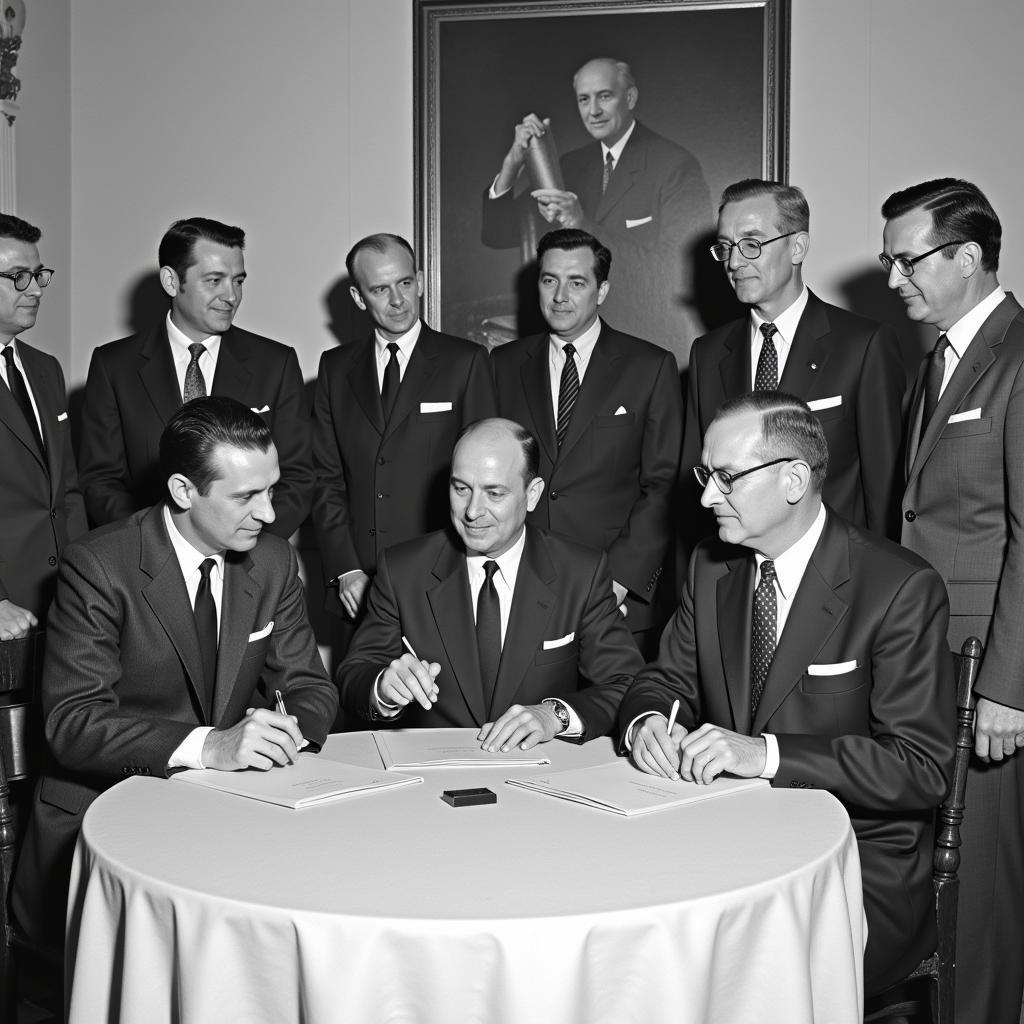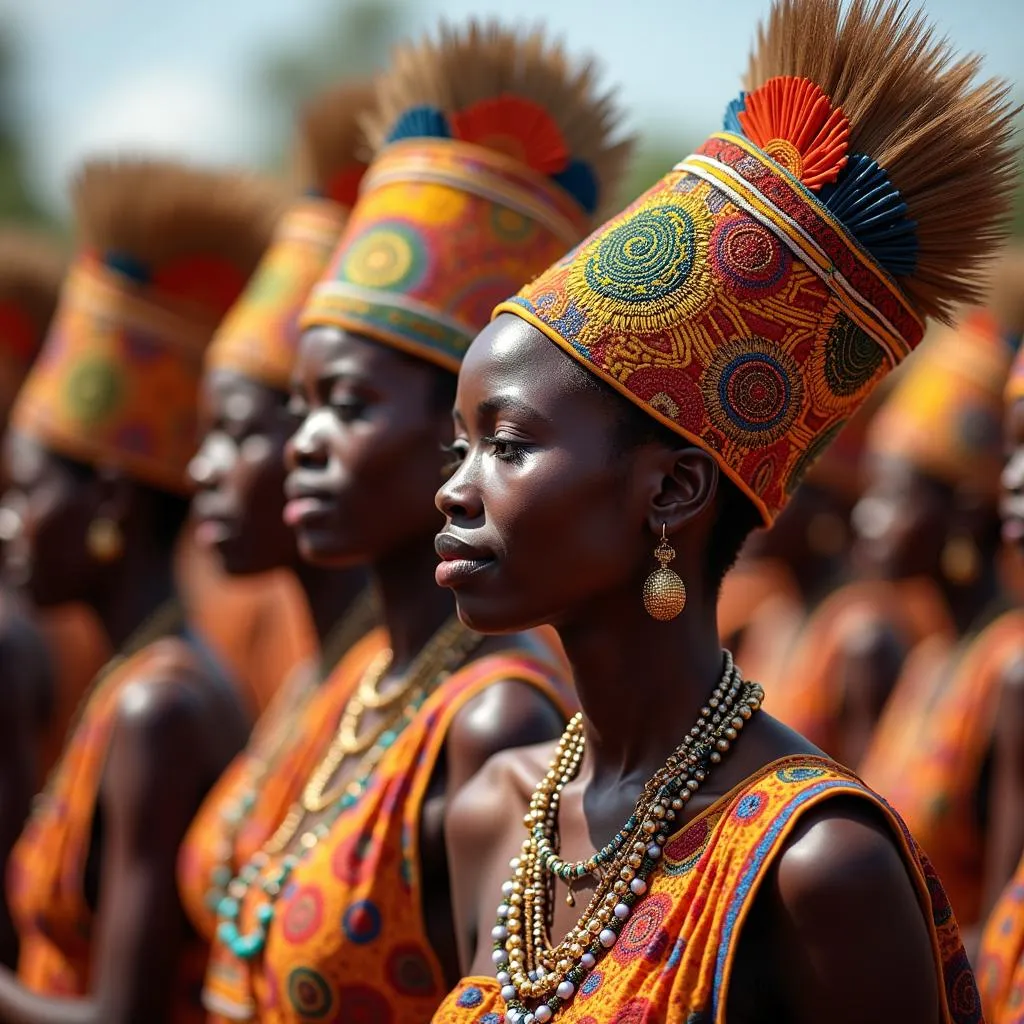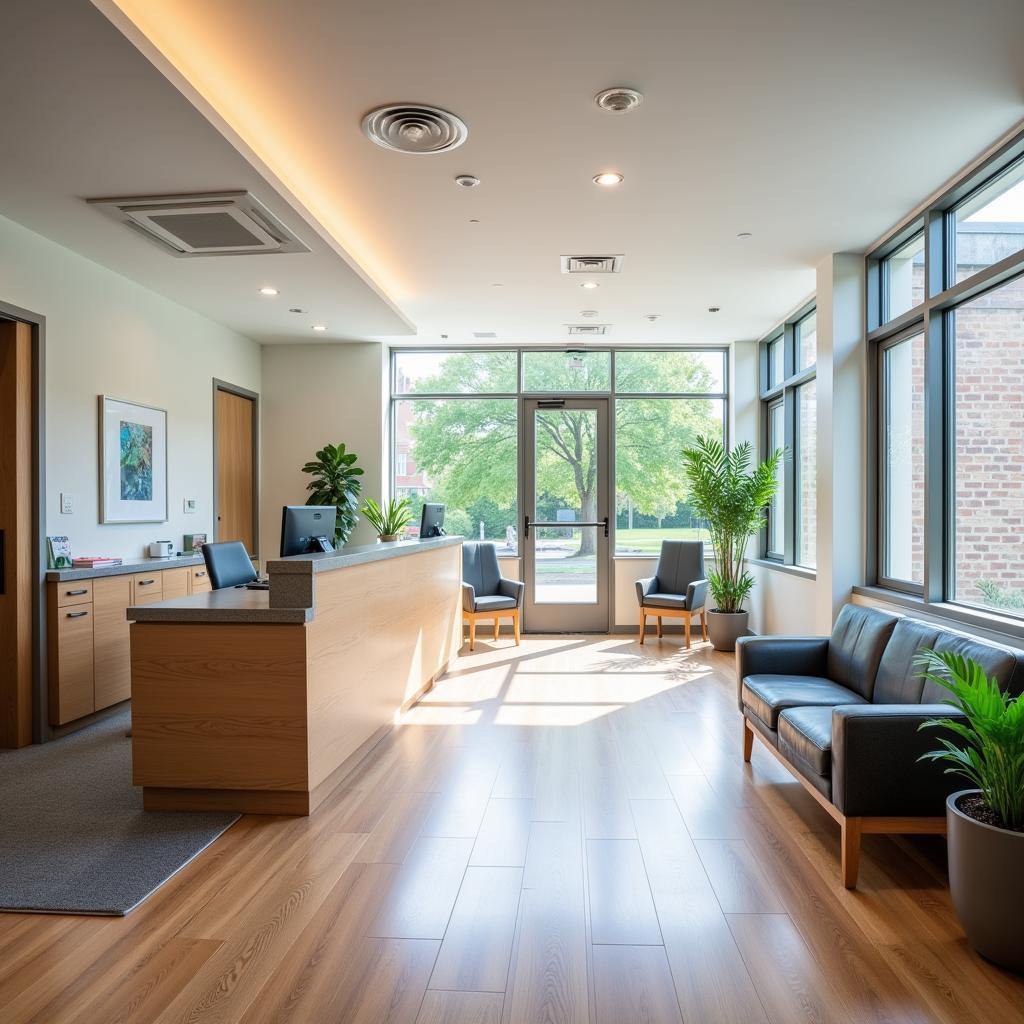A Major Purpose of the Organization of African Unity: Uniting a Continent
The Organization of African Unity (OAU), established in 1963, emerged from a potent mix of post-colonial fervor and a shared desire for pan-African solidarity. A Major Purpose Of The Organization Of African Unity was to foster unity and cooperation among the newly independent African nations. This desire for unity was born out of the shared experience of colonialism and a recognition of the strength in collective action.
A Legacy Forged in Unity
The OAU’s formation marked a watershed moment in African history. It symbolized the collective determination of African nations to break free from the shackles of colonialism and neo-colonialism and chart their own destinies. This unity, the organization believed, was crucial not only for political liberation but also for achieving economic and social progress.
 Founding Members of the OAU
Founding Members of the OAU
Decolonization and the Fight Against Apartheid
One of the OAU’s most significant achievements was its unwavering support for the decolonization of Africa. The organization provided material and diplomatic aid to liberation movements in countries still under colonial rule, contributing significantly to the eventual independence of nations like Angola, Mozambique, and Zimbabwe. Beyond decolonization, the OAU played a pivotal role in the struggle against apartheid in South Africa. The organization imposed sanctions on the apartheid regime and provided a platform for international condemnation, ultimately contributing to the dismantling of the system of racial segregation.
Promoting Economic Cooperation and Development
Beyond its political triumphs, the OAU sought to foster economic cooperation and development on the continent. Recognizing the economic disparities inherited from colonialism, the organization promoted intra-African trade and facilitated regional economic integration. The establishment of the African Development Bank (AfDB) stands as a testament to the OAU’s commitment to African economic progress. The AfDB, headquartered in Abidjan, Côte d’Ivoire, continues to be a key institution financing infrastructure development and promoting economic growth across Africa.
From OAU to AU: A Legacy Continued
In 2003, the OAU transitioned into the African Union (AU), marking a shift from a primarily political organization to one with a broader mandate encompassing peace, security, good governance, and economic development. This evolution reflects the changing realities of the continent and the need for a more proactive and comprehensive approach to addressing contemporary challenges.
FAQs about the Organization of African Unity
1. When was the OAU founded?
The Organization of African Unity was founded on May 25, 1963.
2. Where was the OAU headquartered?
The OAU was headquartered in Addis Ababa, Ethiopia.
3. What is the successor organization to the OAU?
The OAU transitioned into the African Union (AU) in 2003.
4. What were some of the key achievements of the OAU?
The OAU’s key achievements included supporting decolonization movements, fighting against apartheid, and promoting economic cooperation among African nations.
5. How did the OAU promote African unity?
The OAU promoted African unity by providing a platform for dialogue and cooperation among African leaders, supporting liberation movements, and advocating for common African interests on the global stage.
The OAU’s legacy is multifaceted and enduring. While the organization faced criticisms and fell short of some of its goals, its commitment to African unity and its role in shaping the post-colonial trajectory of the continent remain undeniable. The OAU laid the groundwork for the African Union, which continues to strive towards the realization of a peaceful, prosperous, and integrated Africa.
Need more information about Africa? Check out our articles on African elephant info or explore the fascinating world of African American traditions and holidays.
For immediate assistance, contact our 24/7 customer care team at +255768904061, email us at kaka.mag@gmail.com, or visit us in person at Mbarali DC Mawindi, Kangaga, Tanzania.

